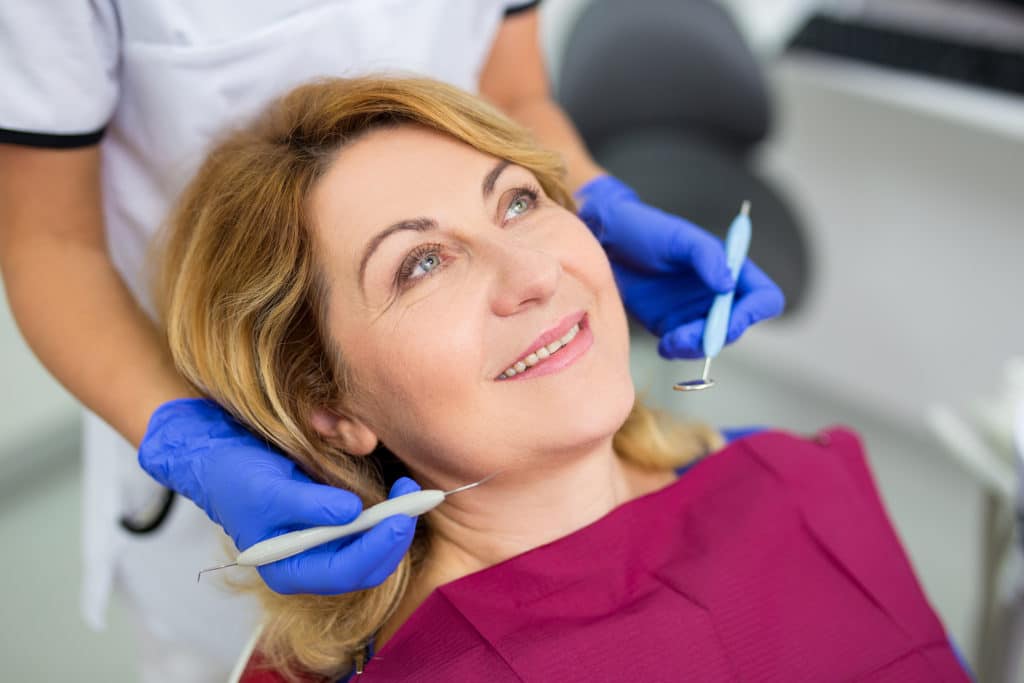Gum Problems
Symptoms in Detail
Oral Health
Some people experience increased problems with bleeding gums and tooth loss during the onset of menopause.

What happens to our oral health?
Declining levels of estrogen has many effects in our bodies and one of the areas affected are the gums, teeth and overall oral health. Lowering estrogen levels can be the cause of bleeding and/or receding gums, dry mouth, weakened teeth and gingivitis. The taste buds can also experience change and cause you to crave sugar and sweet foods or make some food and drink taste highly sugary, salty or metallic.
Menopausal gingivostomatitis is a term used in dentistry to define shiny, reddened gums that bleed easily. This can also make you more sensitive to hot and cold food and drinks. If you experience a dry mouth (xerostomia) you may find eating and swallowing isn’t as easy as it was before.
What can you do to help ease this symptom?
More than ever a regular dental appointment is important to ensure your oral health is monitored. Floss regularly is a known gum disease preventative. Try and keep your estrogen levels as balanced as possible by taking Merry Peri® or Perky Post®.

Menopause Oral Health: 6 Issues To Look Out For
Oral health and peri and post-menopause. Did you know gum disease is one of the 34 most common signs of the menopausal years? Just as the fluctuating hormones of pregnancy can send us on a trip to the dental chair, so too can the fluctuating hormonal activity of perimenopause / menopause. In fact, although it
Know the 34 symptoms of menopause
Here are all of the documented symptoms of menopause you need to look out for:
Physical Symptoms
- Incontinence
- Changes in Body Odour
- Bouts of Rapid Heart Beat
- Breast Pain
- Headaches
- Joint Pain
- Itchy Skin
- Burning Mouth Syndrome
- Electric Shock Sensation
- Digestive Problems
- Gum Problems
- Increased Tension in Muscles
- Formication - Crawly Skin
- Paresthesia - Numbness in Hands and Feet
- Osteoporosis - After Several Years






